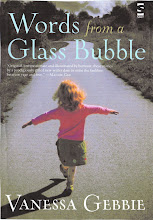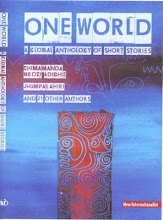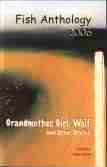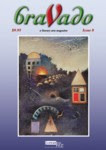 all roads lead to here!
all roads lead to here! The Road to Beara...25 Jan
The Road to Beara...25 JanWhat a wonderful experience, being ‘me’ for a whole two weeks. Right down to the fact that ‘me’ can’t count so ‘me’ booked for two weeks plus one day extra, plus two more days to travel. This was my Christmas present from the family- a chance to get away from things, to finish the first draft of the novel.
I stayed at Anam Cara Writers’ and Artist’s Retreat, spoken about many times here – in what has become my favourite room. And here is the view one morning, from my window...

There is a view over fields to Coulagh Bay, a huge double bed, a desk that never got used…because one of the things I discovered about my creative processes is that I need warmth. Physical warmth, to lull me almost to sleep. So – what better than to curl up with a hot water bottle…so please meet my extremely grown-up sexy bedmate. The Penguin.Here he is helping to edit something...

Yup. I worked for the whole two weeks, from 9.30 to 5.30 with a break for lunch, curled up here. Not sitting upright at a desk. And after supper, I worked again, in front of a roaring log fire, curled up with a glass of red wine or two, visited by Jack the Dog (the best editor in the business).

Here is Jack the Dog, and the fire. Most nights I fell into bed by midnight. On a few nights I worked into the early hours.
What did I achieve? Lots! I’m not going speak about what I’ve done, but I had a great time, creatively. Some of it was very hard. Had to take some tough decisions. And other stuff was simply wonderful. I had a few of those magical moments where your plans go out of the window and the story veers off on its own. How I would KILL for more of those.
One thing I can talk about is the time when nearing the end, a very peripheral character from way back suddenly reappeared and took on what turned out to be a pivotal role throughout the book, necessitating a lot of rewriting and smoothing.
And I did it! Here it is, complete with Roget’s Thesaurus and a candle lit by Sue to celebrate, finished on Monday evening.
 First draft - done! Feb 8th
First draft - done! Feb 8thTrue to form, I decided immediately that one bit was wrong – so I got in the car and spent a few hours on Tuesday writing a replacement scene, in the right place for the character who was talking. Here.
 The man-engine building, Mountain Mine, Allihies.
The man-engine building, Mountain Mine, Allihies.I was alone at the retreat for most of the time, looked after splendidly by Sue Booth Forbes, without whom I would have now gone quite cuckoo – she is such a level-headed lady with more years of experience with this crazy writing world than I can count.
Then had a few days in the company (between scribbling) of Cauvery Madhavan, who is writing her third novel. See link below. She is writer of
Paddy Indian and
The Uncoupling – the latter published by both Black Amber and Penguin’s India wing. She took a pic of me putting a copy of
Short Circuit on the ‘alumni shelves’ – the place where books written by Anam Cara residents are enshrined.
.jpg) Adding to the Anam Cara alumni shelves
Adding to the Anam Cara alumni shelves...Look closely and you will see
Tangled Roots by Sue Guiney.
The White Road and other Stories by Tania Hershman. Several books by Alex Barclay, and Cauvery’s novel
The Uncoupling.
Some NICE THINGS happened in the world of writing – including an acceptance for the 100 Stories for Haiti Anthology which I plugged before going away. It is smashing to have work here with so many writers I know - Martin Reed, Jac Cattaneo, Joel Willans, Claudia Boers, Julia Bohanna, Nuala Ni Chonchuir, Tania Hershman, Sylvia Petter, Teresa Stenson, Alison Dunne, Lauri Kubuitsile - but a special mention and ‘wowee’ noise has to go to the wonderful Mr Willesden Herald himself, Steve Moran. Greg McQueen, the power behind the anthology, will be visiting this blog in the near future to talk about it. There will be lots more on that wonderful book later.
Martin Reed runs Tales of the Decongested, in London. A spoken word event – and on 19th Feb, several of the Haiti writers are reading their Haiti stories there to plug the book. Link below.
Another nice thing is a lovely invitation to give the annual lecture to the students and staff in Creative Writing at the CCE , University of Sussex, in May. And another to take part in Short Fuse during Brighton Festival. Both accepted with great pleasure.
I am waiting for the registered mail packet which will arrive tomorrow- the shortlisted stories for The New Writer short story competition. Looking forward to a read of someone else's work!!
Life carried on of course, while I was away, and I wouldn’t have been able to go without a rather wonderful husband, who took care of my Dad every day. AND took care of the cat, who developed a kidney infection before I went. Did you know you CAN take urine samples from a cat??? Yikes.
Toby took two A level exams. Fingers crossed. Plans were finalised for some orrible building work on the house, starting late Feb - which will hopefully end up as a nice new kitchen. With sexy black worktops. Grrrr.
Some links:
Anam Cara workshops scheduled for 2010. Tales of the Decongested at The Wheatsheaf, Rathbone Place Cauvery Madhavan – an interview on the BBC.
Finally, a pic for inspiration, maybe?? Now how did a lady's undergarment come to be hanging deliciously between a gorse bush and a gatepost...??!


























.jpg)





.JPG)






















